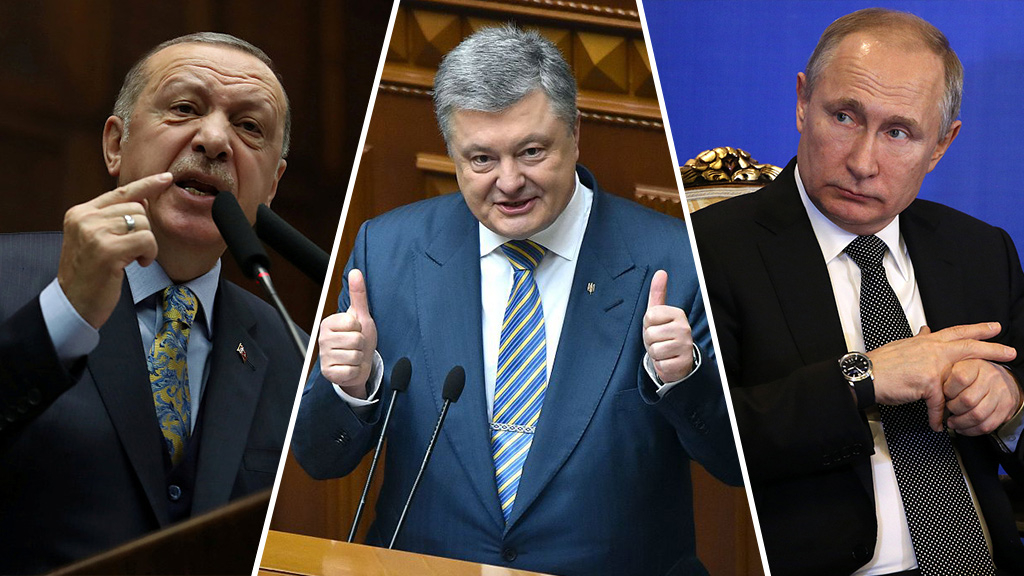A drone deal, a logistics hub project, joint navy drills –Turkey-Ukraine ties are visibly blooming, though Moscow regarded the drone deal as an action that would "worsen the crisis" in the region.
As the year 2019 is "special" for Russia and Turkey in regards to their intensified cooperation, Turkish President Recep Tayyip Erdogan is set to visit Moscow for a session of the High-Level Russian-Turkish Cooperation Council on Monday, in which the regional security issue will be put back on the table.
What does Turkey want?
Erdogan has been working hard to strengthen ties with Ukraine and is continuing to invest in major projects calculated to have a significant economic and political impact throughout the region.
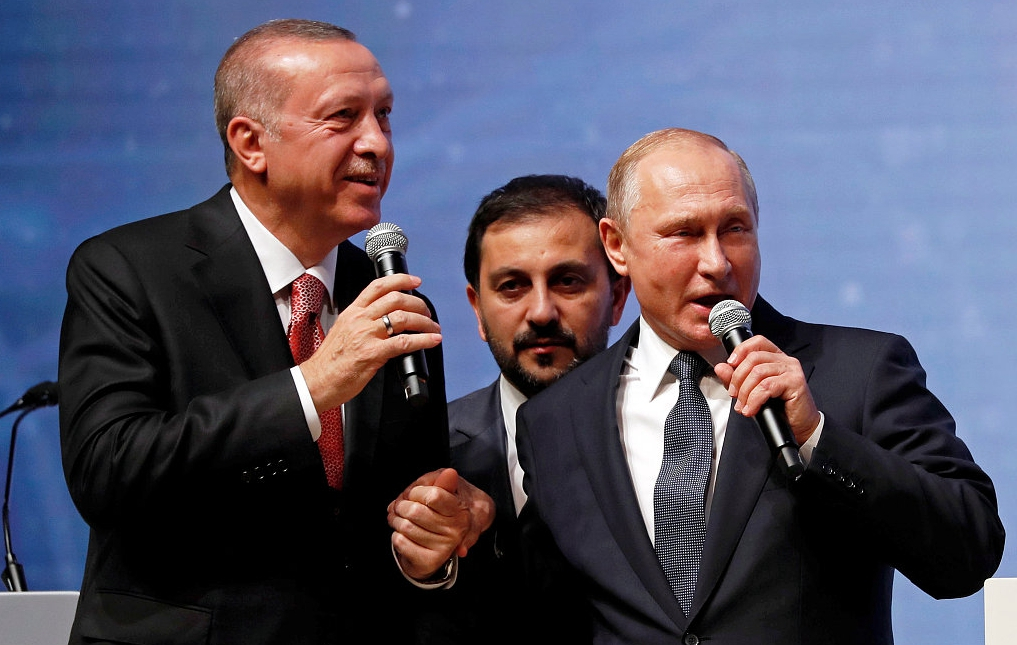
Turkish President Recep Tayyip Erdogan (L) and his Russian counterpart Vladimir Putin talk during a ceremony to mark the completion of the sea part of the TurkStream gas pipeline in Istanbul, Turkey, November 19, 2018. /VCG Photo
Turkish President Recep Tayyip Erdogan (L) and his Russian counterpart Vladimir Putin talk during a ceremony to mark the completion of the sea part of the TurkStream gas pipeline in Istanbul, Turkey, November 19, 2018. /VCG Photo
1. UAVs deal
Based on the January agreement, Turkish unmanned aerial vehicles (UAVs) or drone manufacturer Baykar agreed to produce Bayraktar Tactical Block 2 (TB2) UAVs.
The deal, announced by Ukrainian President Petro Poroshenko on January 13, followed two years after the start of negotiations between Ankara and Kiev on the UAVs.
Along with the UAVs, three ground control station systems and equipment are also to be delivered, Turkish Hurriyet Daily News reported.
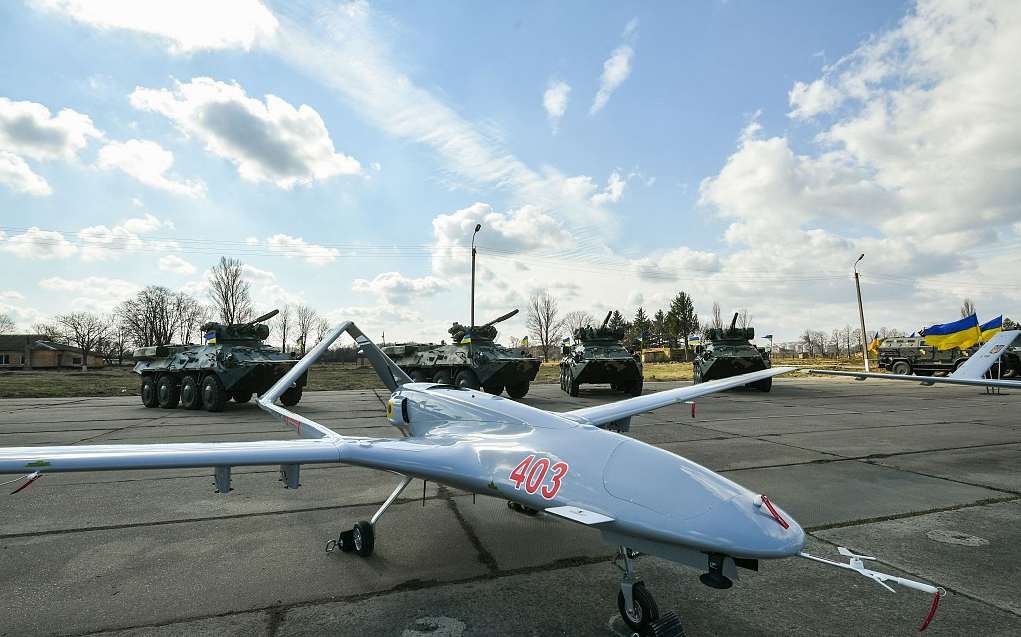
Bayraktar TB2 UAVs is seen before the test flight at the military base located in Hmelnitski, Ukraine, March 20, 2019. /VCG Photo
Bayraktar TB2 UAVs is seen before the test flight at the military base located in Hmelnitski, Ukraine, March 20, 2019. /VCG Photo
The TB2 UAV was developed for tactical reconnaissance and surveillance missions and it can also carry ammo, conduct assaults, and has laser target acquisition.
Following the announcement, Russia's Foreign Ministry's spokesperson Maria Zaharova said the deal "should not worsen the crisis" in the region.
2. Logistics hub
Besides the military-technical cooperation, the two Black Sea neighbors have also deepened their trust and cooperation in economic aspects as bilateral trade has reached almost 4 billion U.S. dollars, Andrii Sybiha, Kiev's ambassador in Ankara, told the media.
According to Ukrainian news agency Ukrinform, Ankara elaborated a project to create a logistics hub in Ukraine.
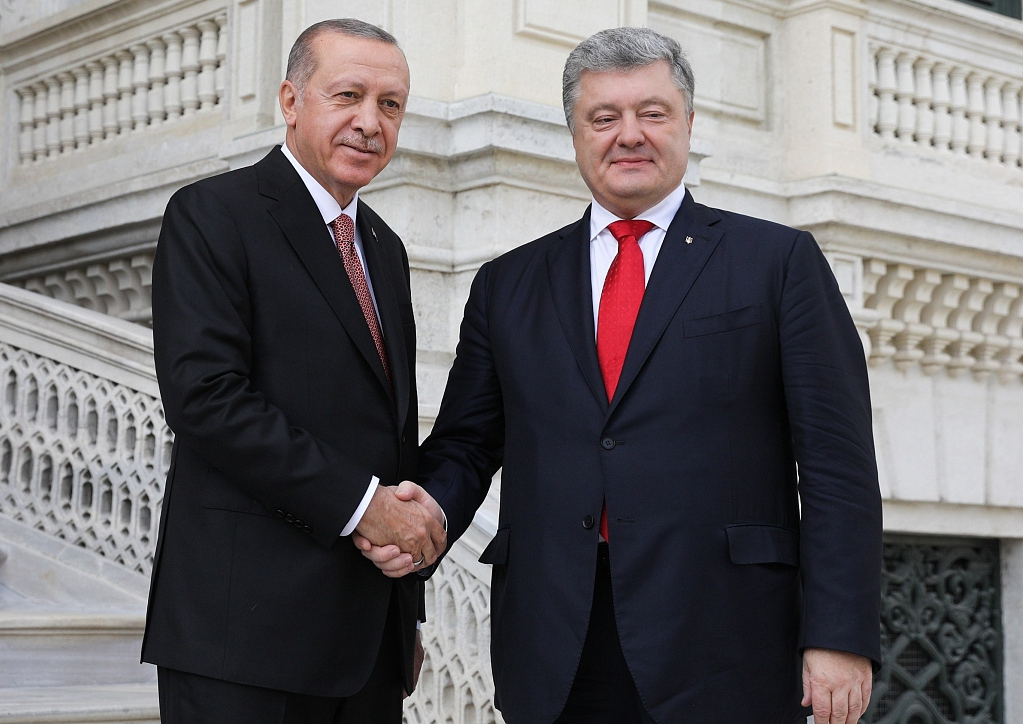
Turkish President Recep Tayyip Erdogan (L) shakes hands with Ukrainian President Petro Poroshenko before their meeting in Istanbul, Turkey, November 3, 2018. /VCG Photo
Turkish President Recep Tayyip Erdogan (L) shakes hands with Ukrainian President Petro Poroshenko before their meeting in Istanbul, Turkey, November 3, 2018. /VCG Photo
Kemal Guney, a representative of the Turkish Ministry of Transport and Infrastructure, believed expanding the fleet and maritime traffic between the two sides will be a significant contribution to the development of the transport sector.
Making better use of the transit potential between Turkey and Ukraine is a crucial area of cooperation, which has not yet been fully utilized, Ukrainian Ambassador to Turkey Andrii Sybiha said, underscoring his country's interest in such partnership.
3. Joint navy drills
In March, Ukrainian Naval Forces conducted joint exercises with two Turkish ships, which were the first PASSEX-type exercises in the Black Sea since the beginning of the year with the participation of Ukraine, deputy commander of the Ukrainian Navy, Rear Admiral Oleksiy Neyizhpapa, noted.
What makes Russia angry?
While Turkey reaps benefits from its relationship with Ukraine, Russia's ties with the country are hostile.
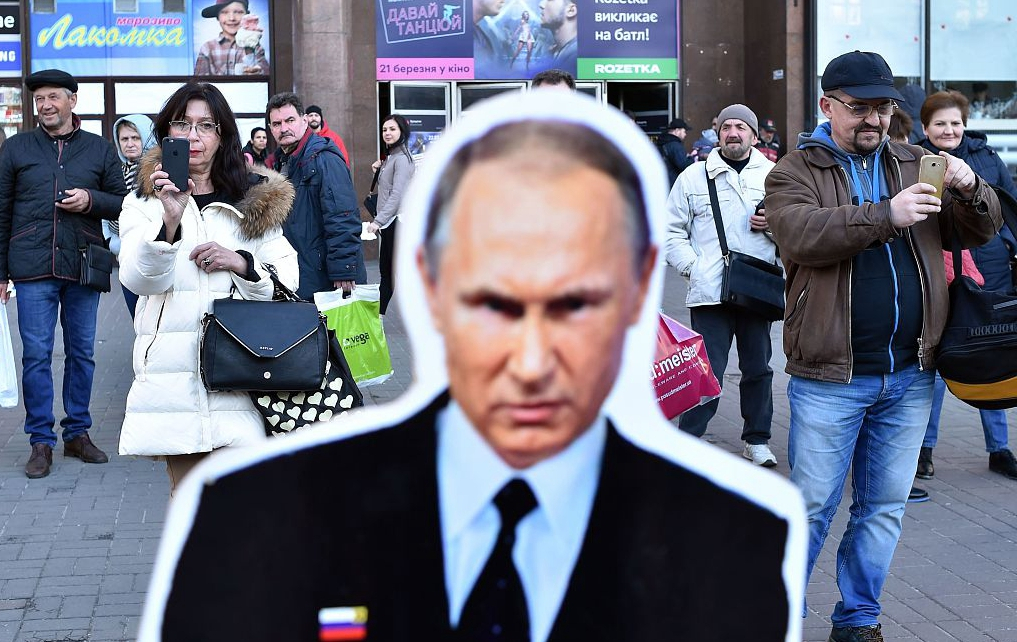
People gather next to a cutout depicting Russian President Vladimir Putin in Kiev, March 28, 2019. /VCG Photo
People gather next to a cutout depicting Russian President Vladimir Putin in Kiev, March 28, 2019. /VCG Photo
Ukraine gained independence after the dissolution of the Soviet Union in December 1991. In 1997, Ukraine and Russia signed a friendship treaty which was due to expire last Sunday.
In February 2014, then Ukrainian president Viktor Yanukovych, who suspended talks over a political and trade deal with the European Union (EU), was forced to flee Kiev.
One week later, Russia formally annexed the Crimea region.
00:43
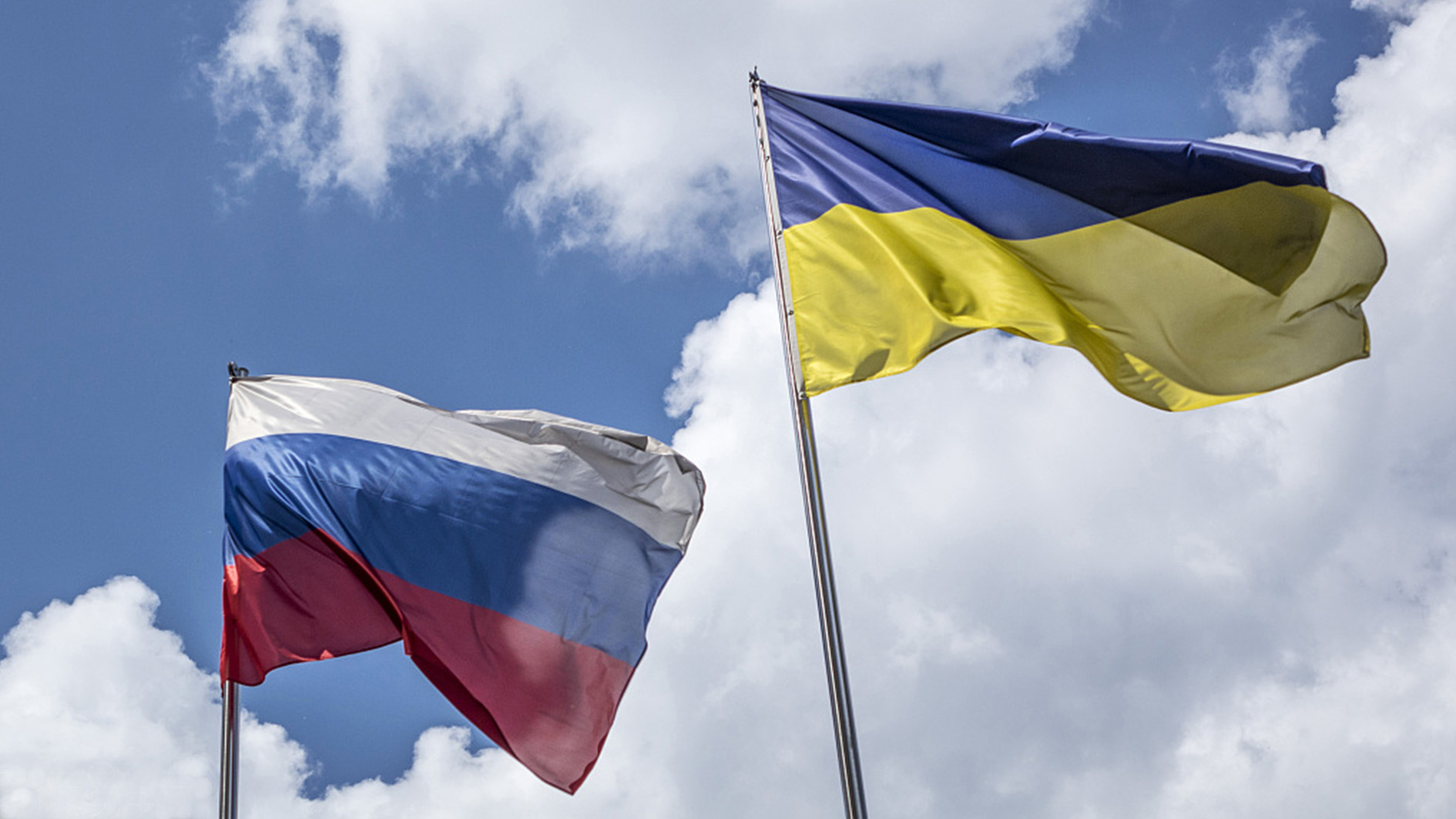
In May 2014, separatists in the eastern regions of Donetsk and Luhansk declared independence. Since then, more than 10,000 people have been killed in the conflict zone.
Petro Poroshenko then won Ukraine's presidential election and within a month signed the contentious EU trade deal.
The former Obama administration in the U.S. and the EU blamed Russia for the crisis and imposed sanctions on it, though Russia denied the allegations.
Russia-Ukraine tensions flared up again last year when Russian President Vladimir Putin inaugurated a bridge linking southern Russia to Crimea, an action Ukraine termed illegal.
In November, Moscow accused Kiev of entering its waters as the country seized two Ukrainian gunboats and a tug with 24 sailors in the Kerch Strait.
(Cover photo by CGTN's Liu Shaozhen)

